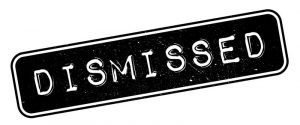 What is a Conditional Discharge in North Carolina?
What is a Conditional Discharge in North Carolina?
In some ways, a conditional discharge is a lot like deferred prosecution. In fact, many of the same terms and conditions for deferred, such as probation, may apply to a conditional discharge (and eventual charges dismissed).
The primary difference is that the defendant enters a guilty plea as part of conditional discharge, but the court does not enter final judgment.
And like deferred prosecution, the Judge must accept the terms of the conditional discharge. The defendant (person charged with a criminal offense) normally pleads guilty to a misdemeanor charge or other Class H or Class I felony in North Carolina. There are instances where a conditional discharge may be possible after being found guilty of certain criminal charges. Talk to your defense attorney about that.
Conditional Discharge First Offense
Drug Treatment Court
Drug Treatment Court in Charlotte is intended as intensive and may require weekly involvement with the court system in Mecklenburg County. It operates in District Court, which normally is responsible for misdemeanor violations and traffic tickets; but, drug court may also involve Superior Court charges and felony offenses.
“Drug Court” as it’s known by legal professionals in Charlotte NC works to resolve problems with substance abuse issues, including dependence on drugs and alcohol. As such, the terms and conditions relative to your criminal charges involve your unique needs and circumstances. In addition to a substance abuse assessment, counseling, and treatment, drug court in Charlotte may require regular drug testing, random drug tests, drug screening, and urine samples.
How Criminal Defense Lawyers Help
Case coordinators are assigned in drug court in Charlotte. They serve as a guide and provide assistance in maintaining sobriety, obtaining access to treatment services, and may also assist in personal issues such as finding housing, a job, and medical services.
There are drug treatment courts in other jurisdictions in North Carolina (approximately 20 counties throughout the state) including Mecklenburg County, Watauga County, Wake County in Raleigh NC, and Asheville NC in Buncombe County. Unfortunately, Drug Treatment Court is not an option or available in every county in North Carolina (there are 100 counties in NC).
Drug Treatment Court requires the person charged with criminal offenses to volunteer for the program and agree to comply with treatment. You must otherwise be eligible for intermediate punishment or community punishment in NC, rather than an active prison sentence. Violent offenders, defendants classified as a “habitual felon” or someone determined to be a drug dealer is normally not eligible for the Drug Treatment Court Program.
Jail Diversion for Veterans
If you served active duty in the military, Reserves, or in the National Guard, you may be eligible for something called Operation Recovery. It is a Trauma Recovery and Jail Diversion Program in North Carolina.
The purpose of the program is to provide assistance to veterans working through substance abuse problems, mental illness, and post-traumatic stress disorder PTSD. It may serve as an alternative to jail time or a jail sentence (incarceration) for veterans of the armed services who have suffered trauma.
Jail Diversion and Trauma Recovery – Priority to Veterans
Mental Illness Diversion Program
An additional alternative to jail and incarceration in North Carolina is the “Jail Diversion Program.” As one might imagine, the Jail Diversion Program serves defendants arrested and charged due to mental illness and psychiatric issues. Normally the applicant has been arrested and in jail. Applicants agree to obtain treatment for mental illness, including aftercare and must not pose a risk to the public if released from jail.
The Jail Diversion Program serves Defendants:
- Serious Mental Illness / Psychiatric Issues
- Minor Criminal Charges
- In Jail
- Agree to Receive Treatment for Mental Illness
- “Not a risk to the public” if released from jail
Youth Diversion Program in North Carolina
Yet another alternative to incarceration program in North Carolina may be available to minors (under the age of 18 years old) who are arrested or charged as a 1st-time offender (first offense) with a non-violent crime.
Top 3 Things To Do If Arrested
The Charlotte Youth Diversion Program offers services for things like conflict resolution, decision-making skills, life skills, and substance abuse issues. It is administered by the Police Department in Charlotte NC (CMPD Charlotte Mecklenburg Police Department), together with several Mecklenburg County social services agencies. Qualified juvenile offenders are given the opportunity to avoid prosecution (and a criminal record) in the Charlotte Criminal Court system.
Requirements include:
- Participation by Juvenile and Parent
- Life Skills Class – 8 Hours OR
- Teen Court
- “Lesser” Misdemeanor Offense
- Cooperation with Diversion Specialist
Criminal Defense Lawyer Charlotte NC – Bill Powers
If you, your child, or someone you love faces criminal charges, it is crucial to seek legal representation without delay. Getting charges dismissed through a diversion program or alternative to incarceration requires preparation and may require immediate action.
Our law firm provides aggressive, zealous legal counsel to people in need on Charlotte criminal defense lawyers for a wide range of different legal matters including DUI charges (DWI in NC), drug charges, possession charges, felony or misdemeanor charges, and larceny embezzlement cases.
Call Bill Powers NOW: 704-342-4357
Helpful Information About Criminal Charges
 Carolina Law Blog
Carolina Law Blog